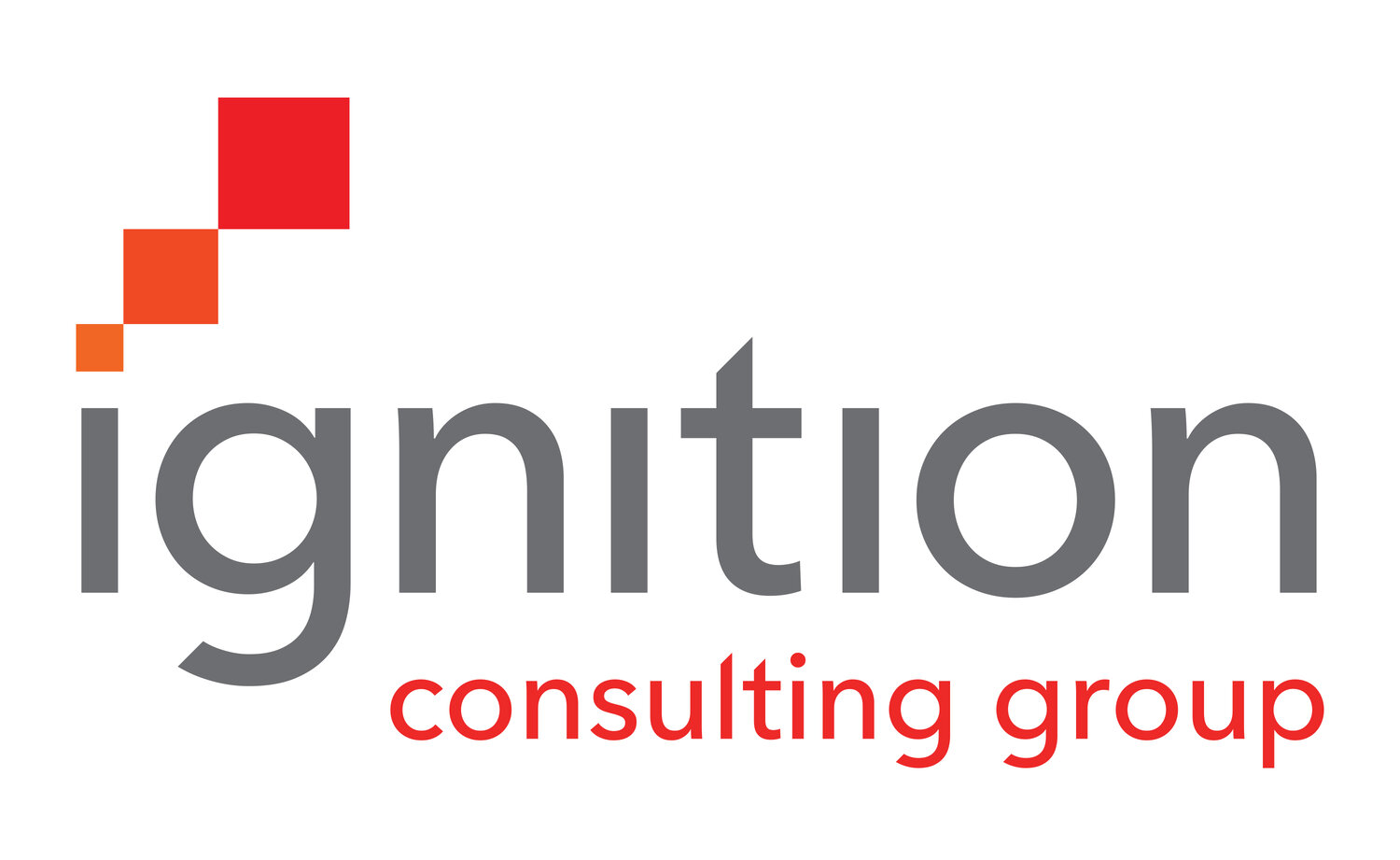
Move from undervalued to unstoppable.
Ignition helps agencies and other professional firms stop trading time for money and turn their expertise into scalable growth, fueled by high-value programs and products.

Stand apart.
Can you describe your firm in an interesting, relevant, and differentiating way in 30 seconds? If not, you haven’t devoted the necessary time and energy to defining your firm’s positioning strategy.
A clear, differentiating positioning strategy is the foundation of success, because it answers the critical questions of what you do (the answer can’t be “everything”) and whom you do it for (the answer can’t be “everybody.”)
Remember, standing for everything is the same as standing for nothing.
Ignition can help your firm learn:
How to go deep to uniquely define what you really sell and what your clients really buy
How to accentuate the things that already differentiate your firm
How to give prospects a reason to travel a thousand miles or more to do business with you
How to align your firm’s brand positioning throughout all functions and disciplines of your organization

Stand profitable.
To improve your firm’s bottom line, there is no single action you can take that is as powerful as improving your pricing. Most agencies operate under the assumption that the key to increased profit is increased revenue – or decreased expenses – but better pricing is a vastly more effective way to reach your financial goals.
When you set the hourly billing model aside and apply creative thinking to the question of agency compensation, a whole host of innovative pricing solutions come to light.
Ignition can help your firm understand:
How to charge for the value of outputs vs. the cost of inputs
The importance of separating the value of ideation and implementation
How to provide more creative, effective pricing proposals in new business
How to create new revenue streams and diversify your remuneration portfolio
It’s fashionable (and confusing) to use the term “scale” in place of the word “grow.” But growth and scalability are two completely different concepts, and the distinction is critically important — especially in the professional service business …
It’s time for marketing procurement professionals to wake up to the fact that artificial intelligence has made hourly billing irrelevant. What’s the point of asking agencies for their schedule of hourly rates when much of their work is being done by machines? …
A future in which advertising agencies, law firms, and CPA practices consist of a founder and zero employees isn’t a theoretical construct; it’s already here.
No doubt an “agency of one” is an extreme example of an AI-optimized professional services firm, but it’s a more practical business model than most of us would have ever imagined.
The great irony of our business continues to be the absolute inability of agencies to do for themselves what they do for their clients.
Despite offering the exact same list of competencies and capabilities as most other firms, agencies want their clients to believe their service offerings are unmatched and unrivaled …
For an agency of 100 people, the cost of licensing the most popular AI tools averages around $120,000 — essentially $1,200 per person. However, the real issue we should be focused on isn’t the cost of AI, but rather the value that it creates for the agency and its clients …
Assuming your firm still follows the practice of billing for time, you can run the calculations that will chart the eventual demise of your revenue model. If you’re like most firms, Generative Artificial Intelligence currently shaves somewhere between 20 and 30 percent off the time it takes to deliver work to your clients. What do you think that figure will be next year, or five years from now?
Visit almost any agency website at random and its almost certain you’ll find a “services” section with a predictable list that includes “brand development, strategic planning, campaign development, media planning, analytics” and you can guess the rest. But today’s clients don’t want to buy your competencies; they want solutions to business problems. Today’s smartest agencies are evolving their traditional bullet-point list of capabilities into bundled solution sets — “products” in place of services …
Current estimates show most professional services firms are completing much of their work at least 12% faster thanks to AI-powered tools. How are your team members spending their new-found time?
The unfortunate but understandable instinct is simply to move on and get a jump start on the next project. But this misses the transformational impact AI can have on our firms …
The single most important ingredient in a successful marketing campaign (besides “brand size”) is still, indisputably, creativity. But as brands grow and AI continues to impact agency operations of all kinds, one crucial question arises: is creativity scalable? …
It's a curious fact that the advertising agency industry is one of the only businesses on the planet where the buyer — not the seller — sets the price. Or so most agencies believe. The subservient attitude many agencies bring to the negotiating table produces a lopsided conversation in which agency executives expect client-side procurement professionals to propose the pricing structure …
After analyzing the pricing practices of innumerable advertising agencies for the past several decades, we have found that the vast majority of marketing firms are remarkably similar. Unless your organization has made the leap from the shop-worn hourly rate system to modern pricing, here’s what we would expect to find. See if the following rings true for your organization …
To remain relevant — and profitable — agencies must regularly reevaluate their offerings to ensure they are optimizing the dynamics of the long tail of the advertising business …
Have you had the experience of signing up for an exciting new software product that, over time, kept adding so many features that the functionality which attracted you in the first place became buried in a sea of features that you didn’t want or need? This is the phenomenon of “featuritis,” and agencies around the world suffer from the effects of an unfocused business strategy …
When we look around the advertising agency industry for examples of truly transformative business models, most of these renovations are cosmetic at best. Agency leadership teams emerge from offsite planning meetings with pronouncements that the firm will undergo a “restructuring” that usually results in nothing more than a new website featuring yet more offerings tacked onto an already overly ambitious service set ...
If you’re building a business you plan to sell someday, to get maximum value, you must go well beyond the checklist provided by M&A consultants. Labor-based businesses like agencies can make poor investments because their main assets—client relationships and talent—can be fleeting. Acquisitions in other sectors usually come with more concrete assets—products, patents, licenses, and other forms of intellectual property ...
Click on the “Services” section of an agency website and you’ll be served with a bullet-point list of widely-available capabilities and competencies. The introductory copy explains that the agency will carefully assemble the right combination of services to meet the specific needs of prospective clients. This unimaginative approach to describing your firm makes it almost impossible for marketers to differentiate your firm from the “sea of sameness” that pervades the industry. …
Click on the “Services” section of an agency website and you’ll be served with a bullet-point list of widely-available capabilities and competencies. The introductory copy explains that the agency will carefully assemble the right combination of services to meet the specific needs of prospective clients. This unimaginative approach to describing your firm makes it almost impossible for marketers to differentiate your firm from the “sea of sameness” that pervades the industry. …
When you make the decision to implement a new revenue model in your firm, one of the essential first steps is to arm your front-line executives with the language and framework they need to sell in solution-based pricing to both clients and prospects. …
“If we complete a project in 30 minutes, it’s because we spent 10 years learning how to complete that project in 30 minutes. You owe us for the years, not the minutes.” These two sentences represent the very essence of the concept of pricing based on value instead of cost …
Most agencies walk into compensation discussions armed with a defense of their costs (spreadsheets populated with people and estimated hours) but have spent virtually no time or energy comprehending the value they’re about to create for their clients. It’s little wonder that the senior executives at most agencies are easy prey for the tactics of professional buyers in compensation and contract negotiations …
Let’s imagine that tomorrow you begin your business day confronted with a startling announcement in the business press: governments around the world have suddenly banned the use of hourly billing. Can you and your colleagues continue to run a successful business — like the agencies in the pre-timesheet era prior to the 1980s — or would your firm have to close its doors …
Can the same kind of "feature fatigue" made famous by over-engineered electronic devices apply just as well to a professional services firm? Absolutely, and it produces largely the same effects …
If this headline describes how you’re feeling about “value-based pricing,” this article was written especially for you. In the countless conversations our firm has had with agency executives about their revenue models, many have expressed this sentiment. But for those of us who teach value-led pricing, the most distressing comment we hear from agency professionals is, “Well, this all sounds good in theory, but …”
Do the executives on the front lines of your firm have a clear, unequivocal understanding of the principles that guide your commercial decisions? The progressive agencies that have a genuine understanding of the value they create have the confidence to follow specific rules of engagement during the process of setting and discussing remuneration …
Your firm has just done its very best work preparing a recommended marketing program and the response from procurement is “This is the most expensive proposal we have ever seen.” The problem, of course, is that your prospective client is telling the other agencies in the review the exact same thing …
After years of fervent discussion about the inadequacies of the time and materials approach to agency compensation, the industry is coming face to face with the fact that time-based billing is a useless concept when applied to problems that can be solved in nanoseconds by machine learning. …
It’s clear that agencies can benefit substantially from changing their revenue model. And on the client side, smart marketers realize that a healthy agency ecosystem is good for the entire industry. The money spent by brands on marketing will have a much stronger impact in the marketplace if their agency partners are staffed with bright, innovative people — well-paid professionals who are capable of creating exponential value for their clients …
Do the executives on the front lines of your firm have a clear, unequivocal understanding of the principles that guide your commercial decisions? By proclaiming your commitment to modern pricing methodologies, you are putting a stake in the ground that not only creates healthier margins but strongly differentiates you from the countless other firms caught in the commercial gridlock caused by hourly billing …
When you purchase a new car, you’re buying a professionally assembled product, not a list of components. It would be senseless to attempt to deconstruct the entire cost of a car in order to judge its value. Why, then, do agencies persist in selling components instead of finished products? Or worse yet, selling the hours required to build the components?
What people are saying
"I can't say enough positive things about how Ignition’s Tim Williams has helped WPP agencies address their positioning and pricing challenges. Tim's presentations inspire our creative leaders, strategists, agency management and finance people to adopt better business practices. He finds the perfect balance between presenting the frameworks that can make our agencies better and the practical change-management workshops that help agencies make the cultural changes required to do a better job of both creating and capturing value.”
— Rick Brook Executive Vice President, Global Client Operations , WPP
“Tim Williams is an industry thought leader, a passionate student of marketing and an incredibly compelling presenter---when Tim speaks...I listen.”
— Tom Finneran, Executive Vice President, 4A's
“With Ignition’s guidance and deep expertise, you’ll move beyond the theory of pricing and revenue transformation with practical ongoing support that will deliver substantial and enduring change to your business model. What’s more it is not generic- - but built on your unique brand platform and position – enhancing competitive advantage and driving significant growth in revenue and margin.”
— Bryan Crawford, Global Vice Chairman, FCB
"Ignition does an outstanding job of teaching creative ways agencies can get paid. It's concise, thoughtful and pragmatic."































Cutting staff is undoubtedly the easiest way to reduce your operating expenses, but it is not the most effective way of improving your profits, which is the real goal of a cost-cutting exercise. If you study the research you’ll find that no other remedy is more effective than improving your pricing …